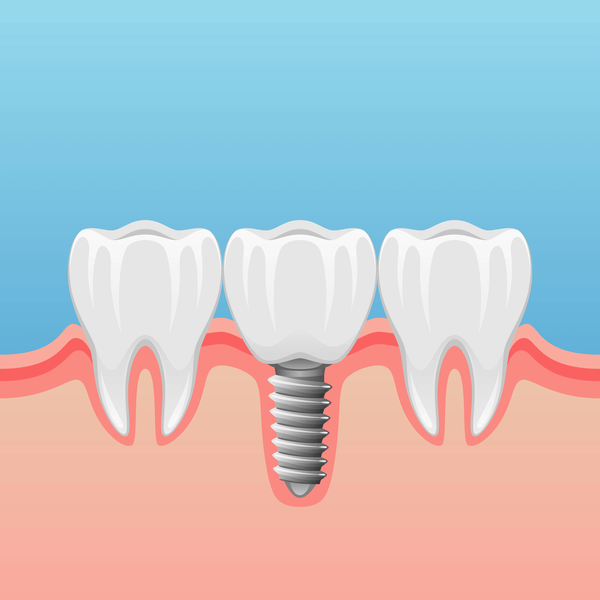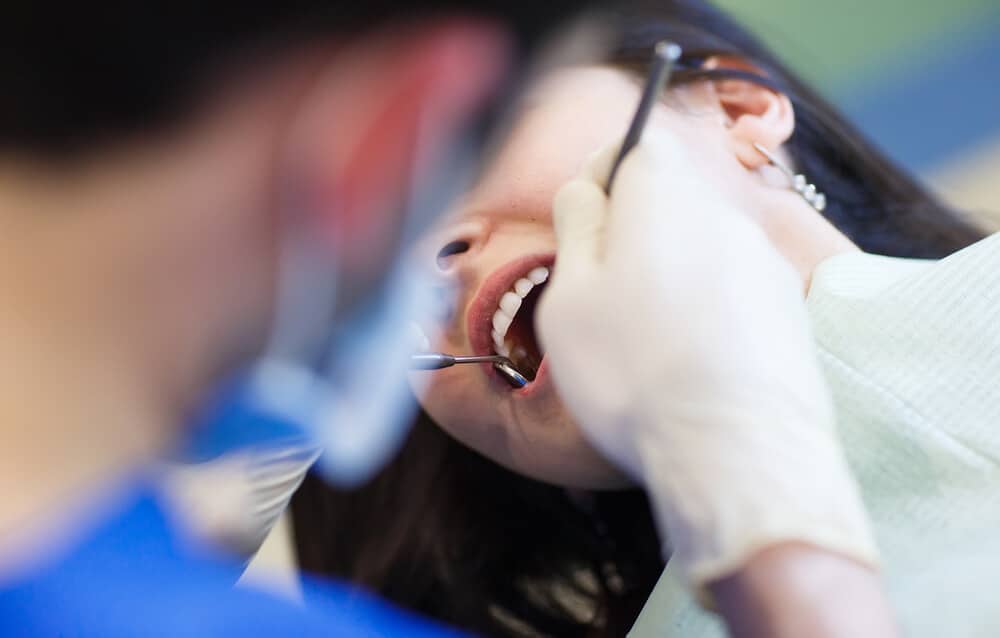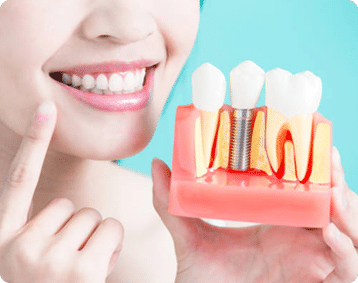
Dental Implants Midland
Are you considering getting dental implants in Midland? Dental implants are one of the most natural-looking tooth restoration options, helping to replace damaged or missing teeth. Our dental implants Midland service is trusted by all of our clients. Don’t leave your teeth any longer, book in today with our Midland dental implant specialists!

What are Dental Implants?
Dental implants are fixed replacements for missing teeth, where the results effectively imitate the complete functionality of natural teeth. Suitable for people with healthy gums and existing bone structure. Tooth implants replace the actual root of the missing tooth. This is done by fusing titanium screws to the jawbone, helping to create a solid support for permanent bridges or crowns.
Benefits of Dental Implants
Dental implants can lead to a host of benefits, from preventing teeth movement and minimising bone loss, to aiding the ability to chew and boosting overall confidence. If you’re wondering how getting dental implants in Midland could help improve your smile and wellbeing, book a consultation at Midland Dental Hub today.


What’s Involved in the Procedure?
Dental implants are made custom to the size and shape of the mouth, making it an involved procedure with various important steps. This procedure often requires collaboration across a variety of areas, including radiology, dental technicians and more. At Midland Dental Hub, we happily work alongside your radiology team and dental technicians to ensure a seamless process from start to finish.
After your initial consultation at Midland Dental Hub, the following appointments will require travel to our nearby sister practice, Glen Forrest Dental Care. This practice has the facilities and equipment necessary to undertake the preliminary dental scans for your treatment, as well as the fitting of the tooth implants. Rest assured, you’ll see many familiar faces at Glen Forrest Dental, with most of our friendly team at Midland Dental Hub working across both practices.
Once your dental implants have been placed, all aftercare appointments can then take place at your preferred practice, whether that be Midland Dental Hub or Glen Forrest Dental Care.
DentiCare Payment Plans
At Midland Dental Hub, we’re committed to ensuring that your implant journey is as stress-free and comfortable as possible. To help you obtain the treatment you deserve, we offer simple, interest-free DentiCare Payment Plans. These payment plans are a convenient and easy way to pay for your dental treatment. This allows you to spread the cost of your treatment over time, without complicated finance contracts, credit checks or interest to pay.
- You will be required to pay a deposit of 20% of the treatment cost. This deposit may be increased if your treatment has very high lab fees
- Your health fund payment is not considered a deposit. The payment plan is applied to your gap payment
- Payment plans must be over $500.00 and under $10,000.00
- You must be over 18 years of age, employed, have no history of bankruptcy and an Australian Citizen
- There is a 3-day application period.

Book a Dental Implant Consultation With Midland Dental Hub Specialists
If you’re considering getting tooth implants in Midland, look no further. At Midland Dental Hub, our friendly team of dental professionals are experienced in all kinds of restorative dentistry. To achieve a fuller, healthier grin, book an initial consultation today.
Dental Implant Midland Post Operative Instructions
Assistance: Following surgery, your reflexes, depth perception and judgment will be impaired for several hours. It is ideal to come to your appointment with somebody.
Bed Rest: If your procedure involved placing a dental implant(s), plan to rest for the remainder of the day with your head slightly elevated. Take it easy, too much activity can increase swelling or bleeding.
Swelling/Bleeding: After placement of dental implants, some degree of bruising and/or swelling is to be expected. Maximum swelling occurs within 48 hours following surgery and may last for several days. Apply ice packs to the outside of your cheek(s) for the first 24 hours if required.
Blood in your saliva is normal for the first day or two. Place pressure on the area with the gauze provided for 10-15 minutes. If bleeding continues or is heavy, please call our office.
If you are having upper implants placed, it is not unusual to have a nose bleed within the first few days following surgery. Should this occur, pack nostrils with the gauze provided, and relax with your head elevated. The bleeding should stop. Try to avoid nose blowing.
Pain: Some discomfort is expected once the anaesthetic wears off. If you were prescribed post-operative pain medication, begin taking if before the anaesthetic wears off to minimise discomfort. Ibuprofen also reduces swelling and can be taken the first 3-4 days. Please do not take anything that contains Aspirin. If the pain cannot be controlled or persists after 24 hours, please contact the practice. Please take all medication according to manufacturer’s instructions.
Brushing/ Rinsing: Brush your teeth as usual, keeping your mouth as clean as possible throughout your recovery. Avoid touching the bristles of your toothbrush to the area of surgery. Avoid water picks and electric tooth brushes for 2 weeks following surgery. The day after surgery, rinse with warm salt water twice a day. Avoid vigorous rinsing. If a prescription rinse has been ordered use as directed.
Leave partials or denture(s) out unless otherwise instructed.
Stiches: The stiches used will dissolve in 7-10 days following surgery. It is not unusual for small pieces of sutures to come out prior to this time. If the sutures need to be removed, you will be notified, and an appointment will be made for you. Avoid playing with your implant or caps with your tongue.
Diet Tips: Avoid the area of surgery with chewing, as chewing on an implant can damage it. Drink plenty of fluids throughout your recovery to avoid dehydration. Continue with this diet until you are instructed otherwise.
Full Denture Patients: For the first few months following surgery, you will need to be on a soft diet where the implants were placed. The soft diet can last as long as 2-6 months. Read more Denture Instructions.
Partial Denture Patients: Chew foods only in the areas where you have natural teeth remaining. Do not chew hard food in the area of your implants for as long as 2-6 months.
Numbness: Due to the local anaesthetic, there may be numbness in the surgery site that may last up to 6-8 hours.
Stress: Avoid stress for two weeks following the procedure. Patients who have higher stress levels will experience delayed healing and greater pain, and are at higher risk of infection and compromised results.
IV Site: If medication was given intravenously, you may have some tenderness or bruising around the site of injection. Moist heat (warm, we cloth) or dry heat (heating pad on low heat) to the area the next day will help to ease any discomfort.
Post-Operative Implant Hygiene: The first year following placement of your implant, oral hygiene maintenance will be required every 3 months to 6 months as directed by your dentist.
Other Important Information: DO NOT smoke or use smokeless tobacco during your healing process. The tars and nicotine may delay healing or cause prolonged bleeding. Bisphosphonate therapy (Fosamax, Boniva, etc.), has been shown to cause osteonecrosis of the jaws which may result in loss of your implant(s).
For Women Only: Do not breast feed for 12 hours if you were sedated for surgery. If you are using oral contraceptives, please note that antibiotics and other medication may interfere with their effectiveness. An alternative form of birth control should be used for one complete cycle of birth control pills after the course of Antibiotics or other medication is complete.
